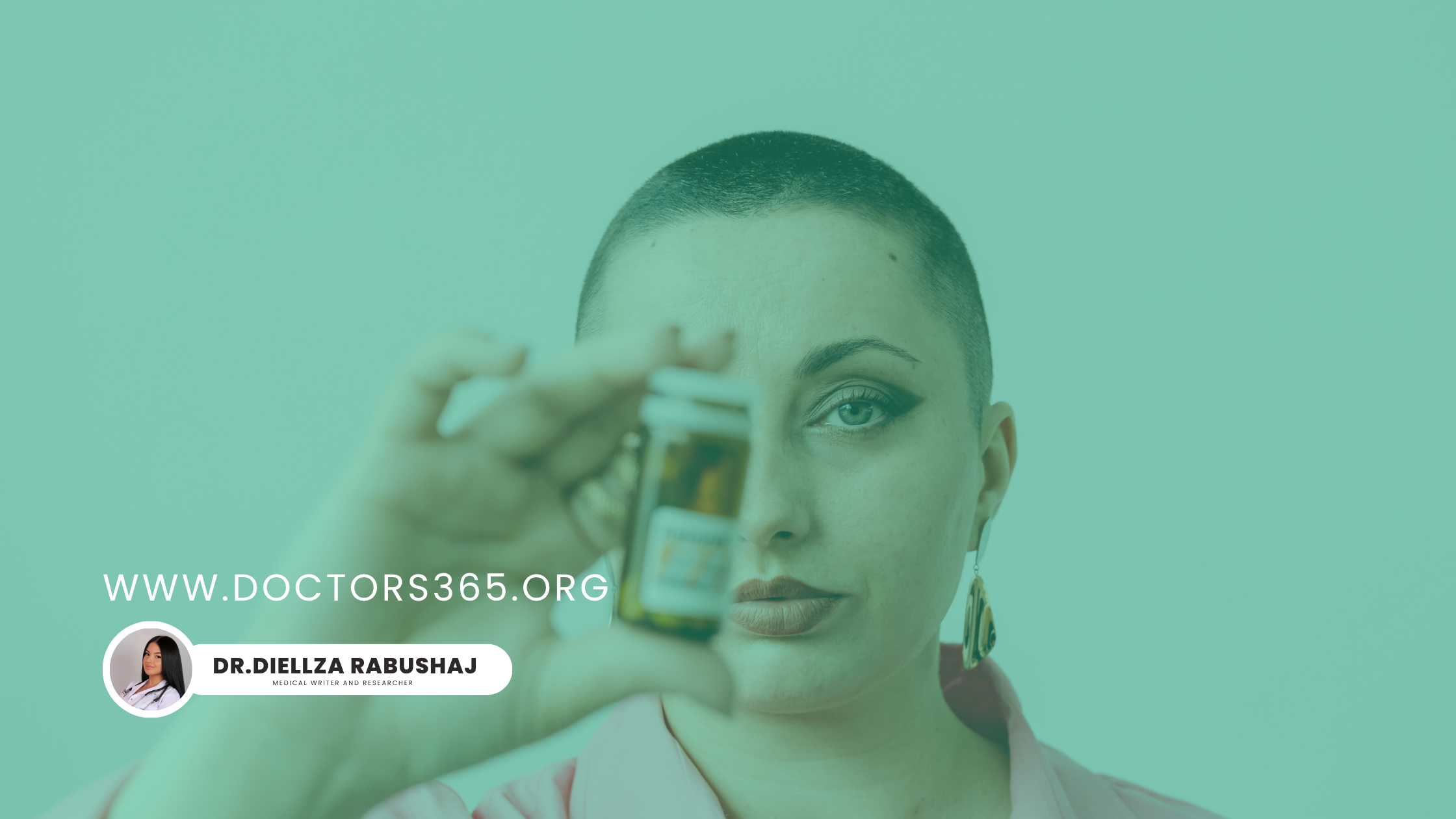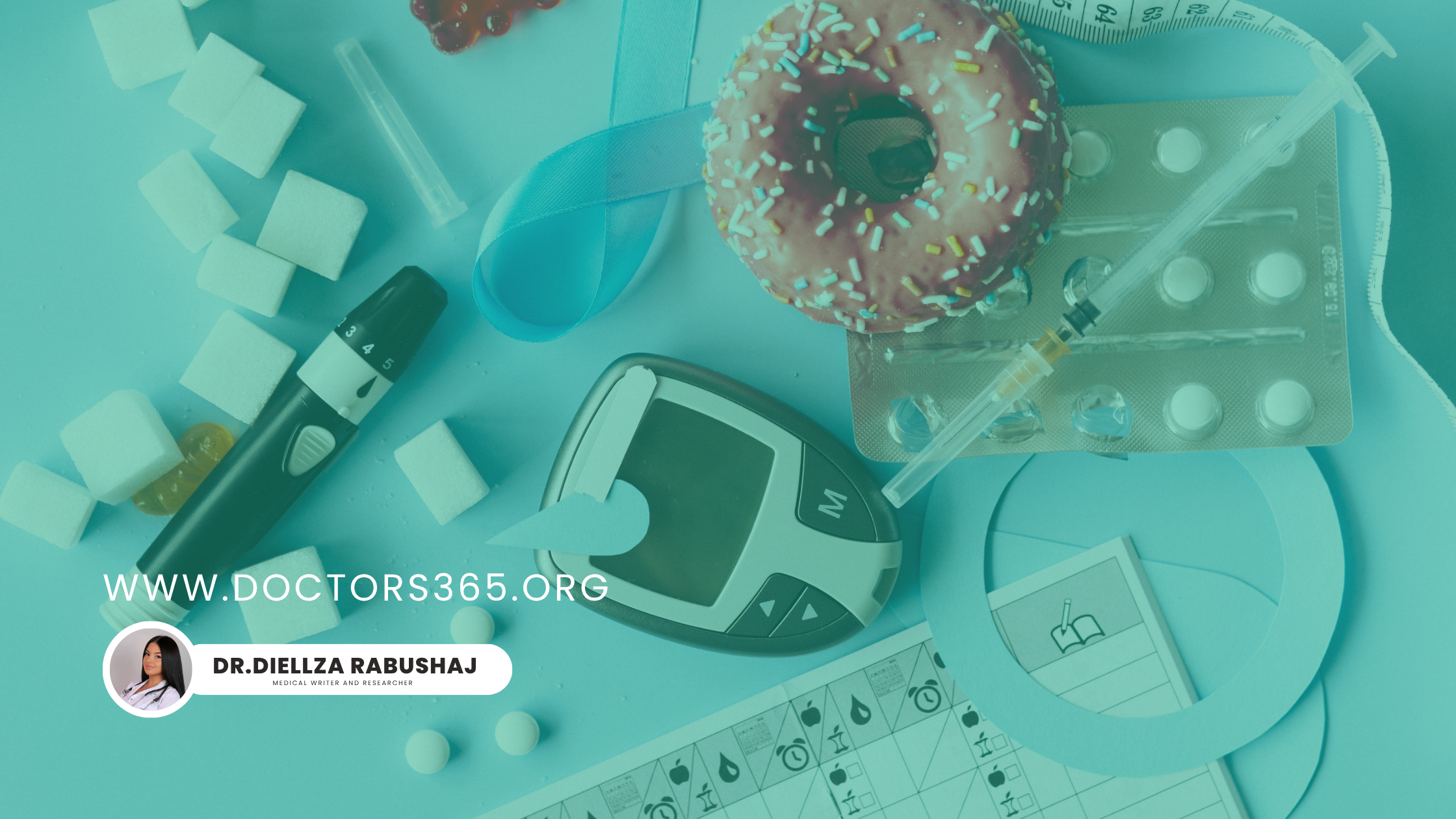
AI trends
Is Your Treatment Truly Personalized?
Personalized medicine tailors treatments to your unique biology. See how Doctors365 can connect you with specialists online.
Personalized medicine is changing the way we understand, prevent, and treat disease by focusing on the individual rather than the “average” patient. By combining genetic information with clinical history, lifestyle, and environmental factors, doctors can select therapies that are more likely to work and less likely to cause serious side effects. In cancer care especially, targeted therapies and biomarker-driven decisions are becoming part of everyday practice. This article explains what personalized medicine is, where it’s already making a difference, and which limitations still exist. It also shows how Doctors365.org allows you to access experienced specialists online—from oncologists to internal medicine doctors—to discuss your options, interpret complex test results, and plan the next steps safely and conveniently. Learn what can be done online, when to seek in-person or emergency care, and how to prepare for a high-value video consultation.
Disclaimer: This article is for educational purposes only. It is not a substitute for professional medical advice, diagnosis, or treatment, and it is not intended for emergency situations.
If you think you may be experiencing a medical emergency (for example, chest pain, severe shortness of breath, stroke symptoms, heavy bleeding, or thoughts of self-harm), please contact your local emergency number or go to the nearest emergency department immediately.
Author: Dr. Diellza Rabushaj
1. What is personalized medicine?
Personalized medicine (sometimes called precision medicine) is an approach to healthcare where treatments, prevention strategies, and follow-up plans are tailored to the individual—based on their genes, environment, lifestyle, and clinical characteristics.[1–4]
Instead of asking, “What usually works for people with this disease?” personalized medicine asks, “What is the best option for this specific person?”
Key ideas:
- Your DNA and other biological markers can influence:
- How likely you are to develop certain diseases
- How fast a disease progresses
- How well you respond to specific medications
- Your risk of side effects from a given drug[1–3]
- Personalized medicine aims to maximize benefit and minimize harm, especially drug toxicity.[1,3]
Researchers and clinicians increasingly see personalized medicine as a paradigm shift in how we think about health and disease, rather than just another “tool”.[3,4]
2. From one-size-fits-all to tailor-made care
For much of modern medicine, treatments were based on how an “average” patient responded in clinical trials. That’s still incredibly useful—but it doesn’t explain why two people with the same disease and the same prescription can have very different outcomes.
Personalized medicine moves away from this “one-size-fits-all” model by:
- Recognizing biological variability (genes, epigenetics, metabolism)[1–4]
- Considering non-genetic factors such as age, sex, comorbidities, lifestyle, and environment[4]
- Using this combined information to choose:
- The right drug
- At the right dose
- For the right patient
- At the right time
As Meyer nicely puts it, the goal is to achieve the best possible result for each individual, not just on average.[4]
3. What information does personalized medicine use?
Personalized medicine typically integrates several layers of information:[1–4]
3.1 Genetic and genomic data
- Variants in genes involved in:
- Drug metabolism (e.g. enzymes in the liver)
- DNA repair
- Immune system checkpoints
- These can influence treatment response and side effect risk.[1–3]
3.2 Epigenetics and other “omics”
- Epigenetics (chemical changes to DNA that affect gene expression)
- Transcriptomics (which genes are being transcribed)
- Proteomics (which proteins are present and in what amounts)
- Metabolomics (metabolic products in your blood or tissues)
These layers provide a dynamic, detailed snapshot of what’s happening in your cells at a given time.[2,5]
3.3 Clinical, lifestyle, and environmental factors
Personalized medicine is not only about genes.[3,4]
It also considers:
- Age, sex, body weight, pregnancy status
- Co-existing diseases (e.g. kidney disease, diabetes)
- Prior treatments and their effects
- Smoking, diet, alcohol, physical activity
- Occupation and environmental exposures
Together, genetic and non-genetic information provide a holistic profile that can guide decisions.[3,4]
3.4 Digital tools, big data, and AI
Modern personalized medicine is powered by:
- Large clinical and genomic databases
- Machine learning models that detect patterns in outcomes
- Decision-support tools to help doctors interpret complex results[2,5]
These technologies help translate raw data into practical recommendations for individual patients.[2]
4. Personalized medicine in oncology
Cancer care is currently one of the most advanced areas of personalized medicine.[3,5]
4.1 Treating tumors based on their biology
Instead of treating all breast, lung, or colon cancers in the same way, oncology now often targets specific molecular alterations in the tumor.[3,5] For example:
- Tumors with particular mutations may respond to targeted drugs that would not help patients without those changes.
- Immunotherapy can be more effective when certain biomarkers are present.[5]
In Bansal’s review, personalized oncology is described as treatment based on tumor genomics, epigenomics, and other unique features, with the potential to transform outcomes and address cancer health inequities.[5]
4.2 Examples of personalized approaches in cancer
- Targeted therapies focused on driver mutations in tumor cells[3,5]
- Companion diagnostic tests to check if a patient’s tumor is likely to respond
- Molecular profiling of tumors to guide clinical trial enrollment
- Emerging liquid biopsies (blood tests that detect tumor DNA) to monitor disease over time[5]
4.3 Opportunities and difficulties
Opportunities:
- More effective treatments
- Fewer unnecessary side effects
- Better long-term planning and surveillance[2,3,5]
Difficulties:
- High cost and limited access to genomic testing
- The need for multidisciplinary teams and specialized technology[2,5]
- Regulatory and reimbursement challenges
- Ensuring equitable access so personalized care doesn’t widen health disparities[2,5]
5. Benefits of personalized medicine for patients
Based on current evidence and expert opinion, key potential benefits include:[1–5]
- Higher treatment efficacy
- Selecting therapies more likely to work for you
- Reduced adverse drug reactions
- Avoiding drugs that your genes or health profile suggest may be harmful[1,3]
- Earlier and more precise diagnosis
- Using biomarkers to detect disease sooner or classify subtypes more accurately[2,3]
- Preventive care tailored to your risk
- Focusing screening and lifestyle interventions where they give the biggest benefit[2]
- Better use of healthcare resources
- Avoiding “trial and error” prescribing and repetitive tests[2,3]
6. Challenges, limitations, and open questions
Despite its promise, personalized medicine faces important obstacles:[2–4]
- Education gaps
- Clinicians need training to interpret and apply genomic and other complex data.[2]
- Access and affordability
- Testing and advanced therapies can be expensive and unevenly distributed across regions.[2,5]
- Regulation and reimbursement
- Health systems and insurers are still adapting to pay for tests and targeted treatments that may help only subsets of patients.[2,3]
- Ethical and social questions
- Genetic privacy, data sharing, and potential discrimination based on risk information.[2–4]
- Translation into everyday care
- Turning scientific knowledge into tangible benefits for real patients remains one of the biggest challenges.[4]
In short: the science is moving fast, but integration into routine practice is still a work in progress.[2–4]
7. How personalized medicine fits with online care at Doctors365
Personalized medicine doesn’t always require a hospital stay or long waiting lists. Many important steps can begin with a video consultation:
- Discussing your family history and risk factors
- Reviewing prior test results, imaging, or pathology reports
- Talking through whether genomic or biomarker testing is appropriate for you
- Planning targeted follow-up with in-person tests when needed
- Getting a second opinion on treatment options, including targeted therapies
Through Doctors365.org, you can connect with specialists who:
- Understand the principles of personalized and precision medicine
- Are experienced in oncology, internal medicine, pharmacology, or genetics
- Can coordinate with your local doctors and hospitals where needed
Online care can’t replace all aspects of personalized medicine, but it can be an efficient, private, and convenient way to start the journey, ask questions, and understand your options.
8. How Doctors365.org works (step-by-step)
Booking an online consultation about personalized medicine on Doctors365 is simple:
- Browse specialists
- Visit Doctors365.org and browse doctors by specialty (e.g. oncology, internal medicine, clinical genetics).
- Pick a time
- Choose a doctor and select an appointment slot that fits your schedule—often including evenings and weekends.
- Confirm and pay online
- Securely confirm your booking and pay online using encrypted payment systems.
- Join your secure video visit
- At the time of your appointment, log in and join via secure, encrypted video.
- You can speak from home, work, or anywhere private with a good internet connection.
- Receive your visit summary and prescriptions
- After the consultation, you receive a written summary, recommendations, and, where appropriate and lawful, electronic prescriptions or referrals.
- You can access your summary anytime via your account.
If you’re ready to explore how personalized care might help you, you can book an online specialist right away here.
9. Benefits of Doctors365 for patients interested in personalized medicine
9.1 24/7 access and flexibility
- Many doctors offer extended hours across time zones.
- You can schedule follow-ups more easily, which is crucial when:
- Reviewing new test results
- Adjusting complex treatment plans
- Monitoring side effects
9.2 Privacy and comfort
Discussing genomic results, cancer risk, or fertility implications can be emotionally heavy. Online consultations allow you to:
- Talk from your own home
- Choose a quiet, comfortable environment
- Invite a family member or friend to join (with your consent)
9.3 Convenience and reduced costs
- Fewer travel costs and time off work
- No waiting rooms
- Faster access to second opinions
- Potentially fewer unnecessary in-person appointments, because the online specialist can triage what needs a physical exam vs what can be handled remotely.
10. Quality, safety, and data protection at Doctors365
Your trust and safety are central when dealing with sensitive topics like genetics and cancer risk.
On Doctors365:
- Doctors are verified for their licenses, qualifications, and experience.
- Clinical governance processes support safe practice, including:
- Protocols for red-flag symptoms and emergency escalation
- Clear documentation and secure storage of consultation notes
- Data protection and encryption
- Consultations run over secure, encrypted connections.
- Your medical information is stored in line with strict privacy standards and applicable regulations.
- Ethical handling of sensitive data
- Genetic or biomarker results (if you choose to share them) are handled with the same confidentiality as all your health records.
11. Which specialists can help with personalized medicine?
Several types of doctors are particularly relevant for personalized medicine:
- Medical oncologists – for cancer diagnosis and treatment, including targeted drugs and immunotherapy
- Clinical geneticists – for inherited disease risk and complex genomic questions
- Internal medicine / general physicians – for chronic diseases influenced by genetics and lifestyle (e.g. hypertension, diabetes)
- Clinical pharmacologists – for complex medication regimens and drug–gene interactions
Note: In your live site, this is where you’d highlight 3–5 real Doctors365 specialists (names, titles, main focus) with links to their profiles—for example:
– A medical oncologist with experience in targeted therapies
– A clinical geneticist focusing on hereditary cancer syndromes
– An internist with an interest in pharmacogenomics
To explore oncology and genetics-related care, you might start here:
- Oncology doctors
- Internal medicine doctors
(Adjust paths to match your site.)
12. What’s appropriate online vs in-person?
Personalized medicine involves both online and in-person steps.
12.1 What can often be done online
- Detailed personal and family history
- Review of existing test results and reports
- Discussion of whether genetic or molecular tests may be useful
- Explanation of treatment options, including targeted therapies
- Second opinions and shared decision-making
- Symptom check-ins and treatment side-effect monitoring (when safe)
- Lifestyle and preventive strategies tailored to your risk profile
12.2 What usually requires in-person care
- Physical examination when new or unexplained symptoms appear
- Imaging (CT, MRI, X-ray, ultrasound)
- Blood draws and biopsies
- Infusion therapies and certain injectable treatments
- Emergency assessments
12.3 Red-flag symptoms: seek urgent or emergency care
Online doctors cannot safely manage emergencies. Seek urgent in-person or emergency care immediately if you experience:
- Sudden chest pain, pressure, or pain radiating to arm/jaw
- Severe shortness of breath or difficulty breathing
- Sudden weakness, facial droop, or difficulties speaking (possible stroke)
- Heavy or uncontrolled bleeding
- High fever with chills in someone on chemotherapy
- Severe allergic reactions (swelling of lips/tongue, difficulty breathing)
- Confusion, loss of consciousness, or fits/seizures
- Thoughts of harming yourself or others
In these situations, call your local emergency number or go to the nearest emergency department.
13. Pricing and availability
Exact prices vary between doctors and countries, but online consultations related to personalized medicine typically include:
- Initial specialist consultation (often longer, to review history and previous tests)
- Follow-up visits to discuss new results or adjust treatment
- Optional multidisciplinary opinions where several specialists collaborate on your care plan
On Doctors365.org, you’ll see:
- The fee for each appointment before booking
- The duration of the consultation
- Available dates and times, often including evenings and weekends
Because you’re not paying for the costs of running a physical clinic during your visit, online care can be more cost-effective than traditional face-to-face visits, especially for second opinions and follow-ups.
14. Practical tips: preparing for an online personalized medicine consultation
To get the most from your online visit:
- Gather your documents
- Previous test results (blood tests, scans, pathology reports)
- Discharge summaries and clinic letters
- Medication list (including doses and over-the-counter drugs)
- Any genetic or molecular test reports you already have
- Write down your questions in advance
- “Do I qualify for any targeted therapies?”
- “Is genetic testing appropriate for me or my family?”
- “How will these results change my treatment plan?”
- Check your tech setup
- Stable internet connection
- Quiet, private space
- Headphones if you need audio privacy
- Consider having a support person
- A family member or friend can help remember information and ask practical questions.
- Be honest about your goals and concerns
- Are you seeking a second opinion?
- Are you worried about hereditary risk for your children?
- Are side effects from current treatment affecting your daily life?
The more information your doctor has, the more personalized and precise their recommendations can be.
15. Frequently asked questions (FAQ)
15.1 Is personalized medicine only about genetics?
No. Genetics is important, but personalized medicine also includes non-genetic factors like age, comorbidities, lifestyle, and environment.[3,4] Good care looks at the whole person, not just their DNA.
15.2 Will personalized medicine guarantee that my treatment works?
Unfortunately, no treatment is guaranteed. Personalized medicine increases the probability that a chosen therapy will work and reduces the risk of serious side effects, but uncertainties always remain.[1–4]
15.3 Is personalized medicine available for all diseases?
Not yet. It is most advanced in fields like oncology, but research is expanding into cardiovascular disease, psychiatry, autoimmune diseases, and more.[2,3] Availability varies between countries and healthcare systems.
15.4 Can an online doctor order genetic or specialized tests for me?
Often yes—but it depends on local regulations. Many specialists can recommend or arrange tests, then follow up online to explain results. Some tests may require coordination with local labs or hospitals.
15.5 How do I know if personalized medicine is right for me?
If you have a serious or chronic condition, a strong family history of disease, or you’re not responding as expected to standard treatment, it’s reasonable to ask a specialist whether a more personalized approach (including potential genomic or biomarker testing) could help.[1–5]
16. Conclusion
Personalized medicine is reshaping healthcare by focusing on what works best for each individual, rather than relying only on averages.[1–4] In oncology and beyond, it aims to improve outcomes, limit toxicity, and make prevention more targeted and meaningful.[1–3,5]
There are still real challenges—access, cost, education, and ethical questions—but the direction of travel is clear: more tailored, data-informed care that respects your uniqueness as a patient.[2–5]
Online platforms like Doctors365.org make it easier to:
- Reach specialists with expertise in personalized care
- Discuss complex test results from the comfort of home
- Get second opinions and ongoing support without long delays
If you’re wondering whether a more individualized approach could benefit you, consider booking an online consultation with a specialist today:
- Find an oncology specialist
- Find an internal medicine specialist
Your health is personal. Your care can be too.
References
- Akhondzadeh S. Personalized medicine: a tailor made medicine. Avicenna J Med Biotechnol. 2014;6(4):191. https://www.ncbi.nlm.nih.gov/pmc/articles/PMC4224657/ (Frontiers)
- Chan IS, Ginsburg GS. Personalized medicine: progress and promise. Annu Rev Genomics Hum Genet. 2011;12:217–244, DOI: https://doi.org/10.1146/annurev-genom-082410-101446
- Annadurai K, Danasekaran R, Mani G. Personalized medicine: A paradigm shift towards promising health care. J Pharm Bioallied Sci. 2016;8:77–78.,DOI : https://doi.org/10.4103/0975-7406.171732
- Meyer U. Personalized medicine: A personal view. Clin Pharmacol Ther. 2012;91(3):373–375, DOI : https://doi.org/10.1038/clpt.2011.238
- Bansal D. Personalized medicine in oncology: advancements, difficulties, and prospects. Int J Therapeutic Innovation. 2025;3(4):11–21.DOI : https://doi.org/10.55522/ijti.v3i4.0121
Recommended articles for You

Personalized medicine tailors treatments to your unique biology. See how Doctors365 can connect you with specialists online.

Some diabetes tablets (SGLT2 inhibitors) can also protect your heart. Find out how and when they’re used.

How AI is reshaping modern medicine and how doctors365.org connects you with specialists in this new digital era.